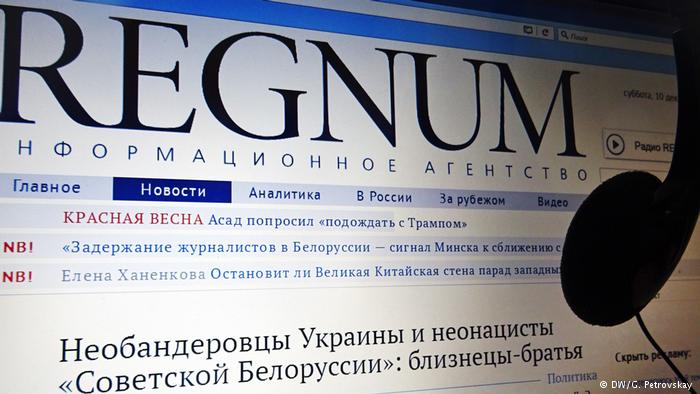Belarusian authorities bring in strict restrictions for supporters of union with Russia
 The situation has not changed
The situation has not changed

The arrest of three Regnum authors, a Russian news agency, is a clear signal to the nomenclature to readjust their loyalty. The strategic alliance with Russia has been marked with a red line: the unconditional recognition of Belarus’ cultural and political self-determination and sovereignty. Belarusian power bodies remain the main instrument of domestic policy.
On December 8th-10th, the law enforcement conducted searches and detained three authors of Regnum, a Russian news agency, Yuri Pavlovets, Dmitry Alimkin and Sergei Shiptenko (who wrote for Regnum.ru under pseudonyms Nikolai Radov, Alla Bron and Artur Grigoriev) on charges envisaged by part 1 Article 130 of the Criminal Code – incitement of ethnic hatred and enmity. All state TV channels broadly covered the arrests and the reasons behind them.
Belarusian Information Minister Liliya Ananich explained to the media that the ministry launched a compliance assessment of Regnum publications for incitement of ethnic hatred in early November and that numerous components of a crime were discovered. The commission transferred its conclusions to the law enforcement. The Ministry also appealed to the Russian authorities with a request to explain how Regnum’s editorial policy corresponded with the Kremlin policy towards Belarus.
That said, the Belarusian state media emphasised that cases of Regnum and Eduard Palchis, who was recently found guilty under Article 130 of the Criminal Code, were regarded as related – as inciting enmity between the Russian and Belarusian peoples. Apparently, the authorities adhere to the following logic: the state should take harsh measures against anyone who interferes with a common information space with Russia on either side.
Most likely, the Belarusian authorities have long warned supporters of Slavic trinity, Western Russia and other pro-Russian movements denying Belarusian sovereignty, who occupied high positions in the government and voiced discontent with strengthening of the state sovereignty. For instance, the case of former MP and leader of the Belarusian Slavic Committee S. Kostyan, who directly referred to the previous state policy in this regard. Now the rules have changed and the authorities have undertaken a more decisive action.
It should also be noted that the Belarusian authorities often use preventive detentions to ensure the loyalty. The Belarusian authorities are likely to use ad hoc detentions, rather than, for example, closing down broadcasting or media outlets – similar to what they did with independent media. Belarusian power bodies remain the main instrument of domestic policy.
Subscribe to our newsletter




Situation in Belarus
Constitutional referendum: main consequences


 Video
Video
How to count the political prisoners: are the new criteria needed?


 Video
Video
Paternalism In Decline, Belarusian Euroscepticism, And The Influence Of Russia


 Video
Video











